ISLAMABAD, July 7: Pakistan on Monday asked India to end repression and human rights abuse in held Kashmir in the wake of Islamabad’s assurance that no cross-border activity or LoC violation had been taking place.
Foreign office spokesman Masud Khan expressed apprehensions that “conflicting statements” by the Indian leaders suggested they were “second guessing” the initiative taken by Prime Minister Atal Behari Vajpayee (for the resumption of talks) in order to scuttle the spirit of the initiative.
At his weekly briefing, he urged New Delhi to sincerely reciprocate President Pervez Musharraf’s repeated declarations that no cross-border movement was taking place from Pakistani territory, and suggested that India should dismantle its infrastructure of repression.
The spokesman rejected as unacceptable the suggestions emanating from Delhi that talks should begin with a meeting at the joint secretaries’ level. He said India should not indulge in offering cosmetic measures, rather it should recognize that talks could start at the minimum level of foreign secretaries, moving up gradually to higher levels and finally at the summit level.
NON-PROLIFERATION: Referring to reports regarding President Pervez Musharraf’s talks about nuclear proliferation with the government leaders of the United States, UK, France and Germany, the spokesman averred that the nation’s “nuclear capacity has become part of Pakistan’s national identity”.
“Pakistan,” he reiterated, “is a nuclear power and will remain a nuclear power and there is no rollback and there will be no rollback.”
He, however, admitted that the president’s interaction with those leaders on the subject of nuclear proliferation was in the context of “horizontal proliferation”, clearly stating that Pakistan’s relationship with North Korea did not cover “conventional and non-conventional transactions”.
He said Pakistan’s record on non-proliferation was impeccable and affirmed “we do not proliferate weapons of mass destruction”. He stressed while Pakistan was determined to remain a nuclear power, it was following “restraint and responsibility...yes, (but) rollback, no”.
SAARC: The spokesman said Foreign Secretary Riaz Khokhar, who left for Kathmandu to attend the fourth special meeting of Saarc on July 9-10, would also call on the Nepalese prime minister. The Kathmandu talks are expected to finalize the date for the summit meeting likely to be held in Islamabad in December.
Asked about a possible meeting between Mr Khokhar and his Indian counterpart in Kathmandu, the spokesman said: “Our doors are open. (While) “we would welcome it, we don’t want to sound desperate, the opportunity is there”.
Elaborating, he said there was an opportunity for a meeting on the basis of sovereign equality, honour and dignity as Islamabad was striving for peace and stability in the region.
SKIRMISHES: In reply to questions about reported intense exchange of fire along the Pakistan-Afghan border, the spokesman admitted that for sometime intermittent firing across the border had been taking place but insisted it had “not reached alarming scale”.
He said there had been no casualty on the Pakistan side and surmised that the exchange of fire had begun as a result of “volatile Afghan side”.
The spokesman hoped the problem would be sorted out within the available mechanism between the two countries. He held out an assurance that Islamabad adhered to Bonn Agreement for maintaining peaceful and good relations with Kabul.
BUS SERVICE: Mr Masud Khan confirmed that the bus service between India and Pakistan would start from July 11 and added that guards would escort the buses.
In reply to a question whether there would be some flexibility in obtaining visas on both sides, he said the matter might be discussed later.
The spokesman described Quetta massacre as tragic and horrendous, aimed at damaging Pakistan’s image abroad while President Musharraf was about to complete his four-nation visit. He said investigations were under way to find the perpetrators of the massacre taking into account all possibilities behind the tragedy, including the suspected foreign hand.















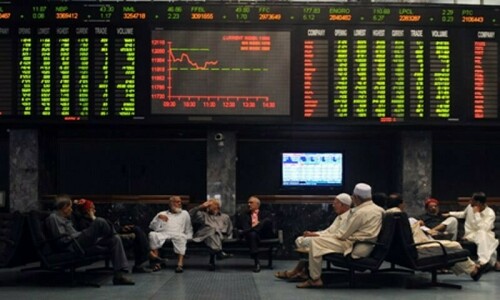












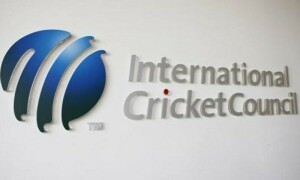






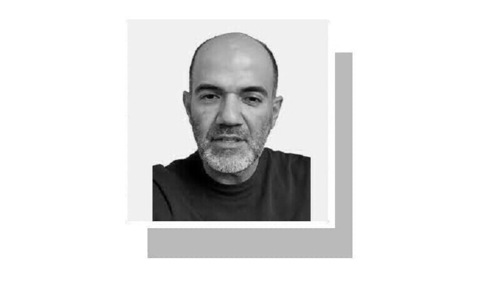




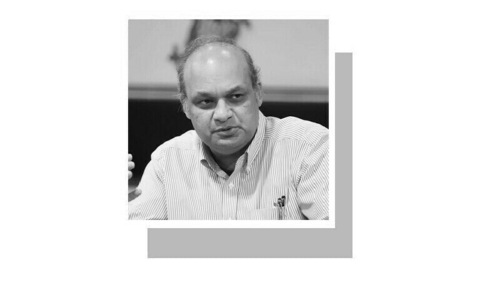
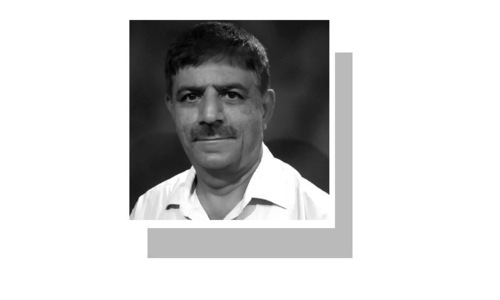


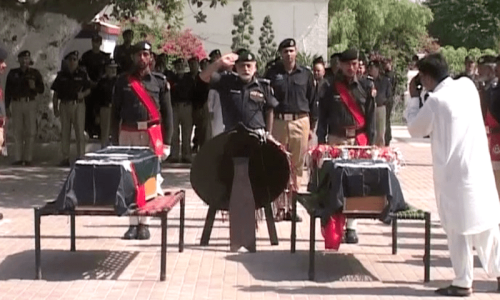

Dear visitor, the comments section is undergoing an overhaul and will return soon.